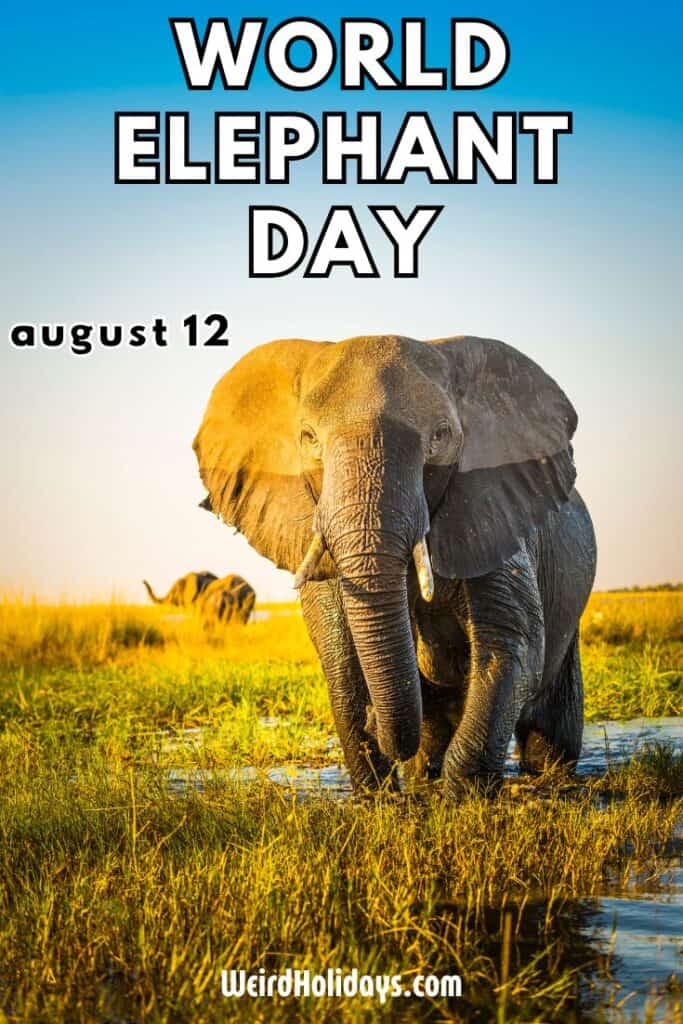World Elephant Day (August 12)
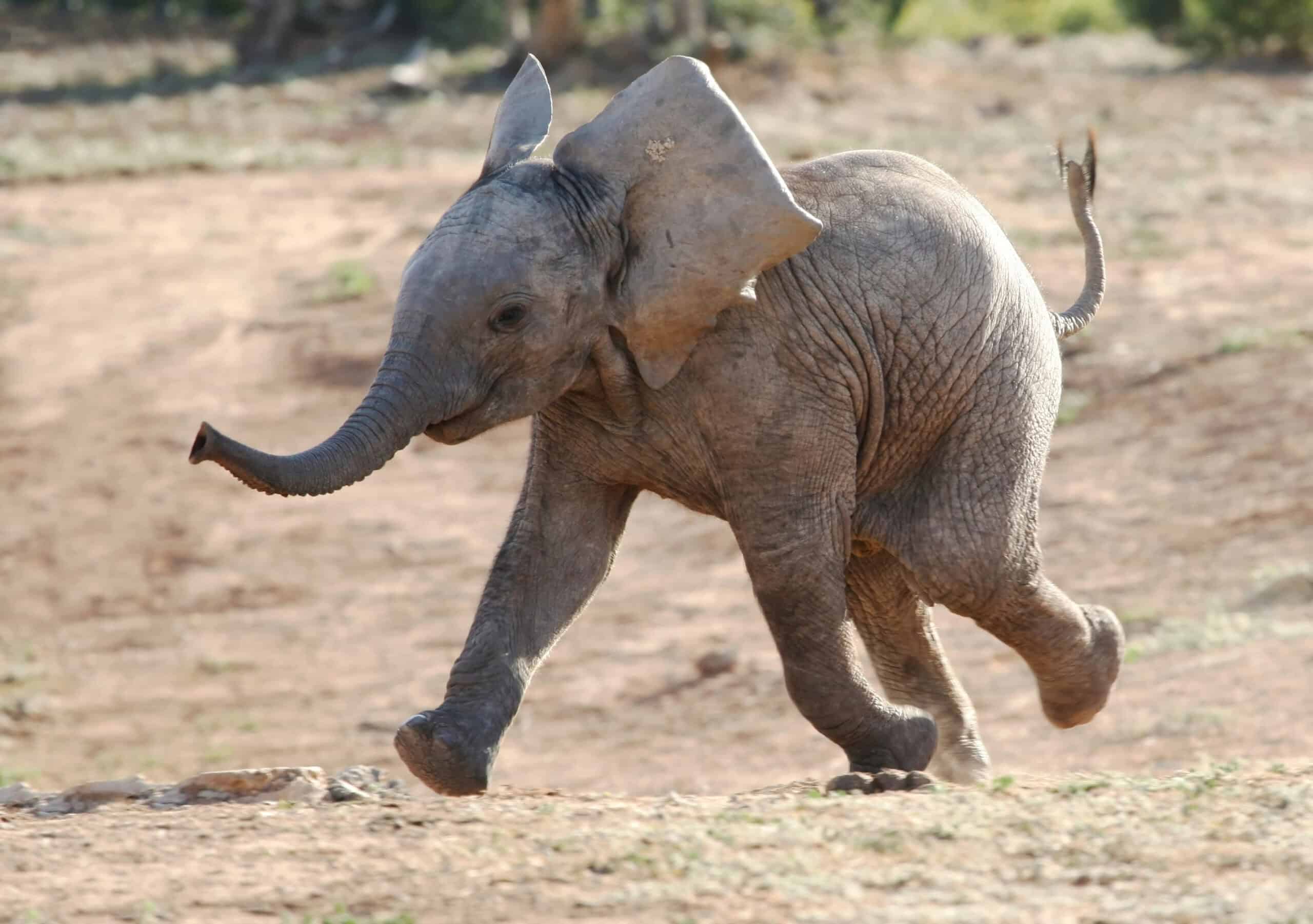
One weird holiday on August 12 is World Elephant Day. Check out the other weird August holidays!
Once a year, on August 12th, the world turns its gaze to the grandeur of the elephant. World Elephant Day beckons us to celebrate these magnificent creatures that roam the Earth with a grace that belies their immense size.
This special day is dedicated to the preservation and protection of both African and Asian elephants, casting a spotlight on the urgent need to address the challenges they face in the wild.
From the bustling forests of India to the expansive savannas of Africa, elephants have captured the human imagination for centuries with their intelligence, emotional depth, and complex social hierarchies.
Today, we honor their significance in the natural world and rally together to secure their future for generations to come.
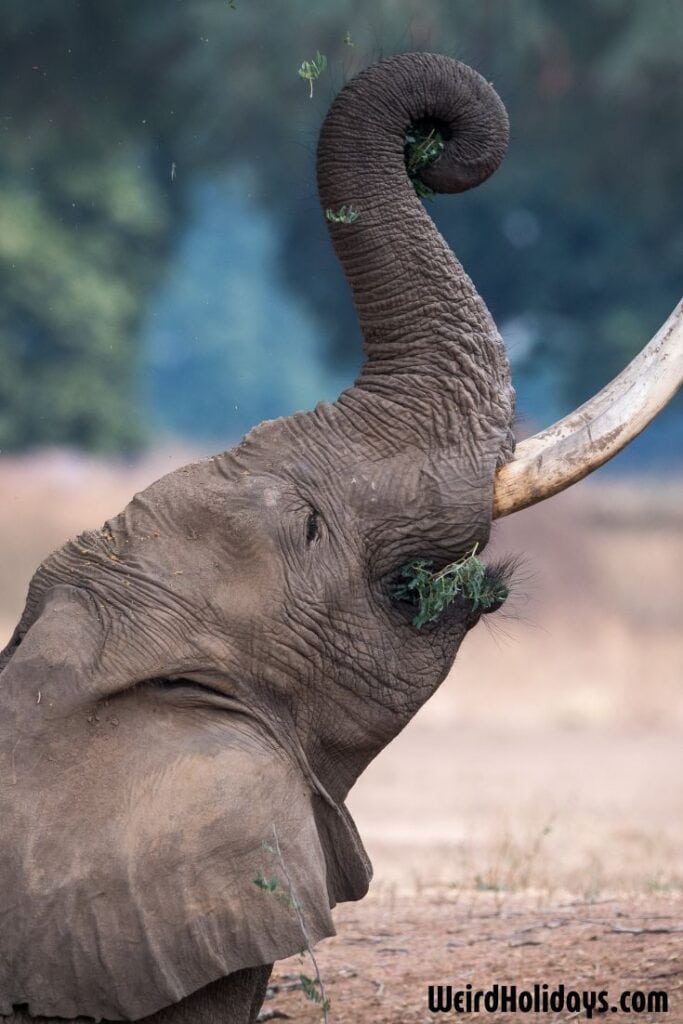
When is World Elephant Day?
World Elephant Day is celebrated internationally on August 12th each year.
Who Invented World Elephant Day?
World Elephant Day was officially launched on August 12, 2012, by Canadian filmmaker Patricia Sims and the Elephant Reintroduction Foundation of Thailand. The purpose of creating such a day was clear: to bring attention to the critical threats facing elephants and to unite individuals and organizations around the world in a consolidated effort to support conservation.
This day has since grown into a powerful movement, with over 100 wildlife organizations and countless individuals participating in activities and campaigns focused on the protection of elephants.
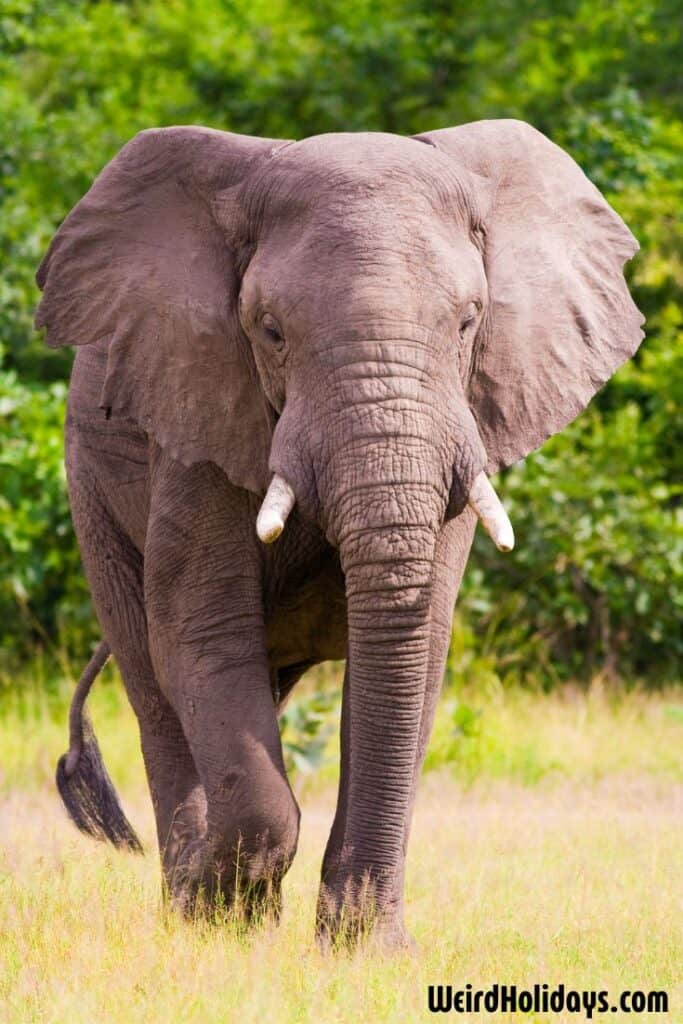
Every year on August 12th, World Elephant Day is observed globally to raise awareness about the plight of elephants across Africa and Asia. This international event highlights the urgent need for the conservation of these majestic creatures and addresses the various challenges they face, including habitat loss, conflicts with humans, and poaching for ivory and body parts.
World Elephant Day serves as a crucial reminder of the importance of global efforts required to protect these magnificent animals and ensure their survival for future generations.
The Magnificent Elephant
Elephants, known for their intelligence and complex social structures, are among the most iconic and revered animals on the planet. These gentle giants are distinguished not only by their impressive size but also by their unique features, such as long trunks, large ears, and tusks.
Elephants play a critical role in their ecosystems as keystone species by maintaining the biodiversity of the environments they inhabit.
**This post may contain affiliate links. As an Amazon Associate and a participant in other affiliate programs, I earn a commission on qualifying purchases.**
Species of Elephants
There are three main species of elephants:
- African Savannah Elephant: The largest of all elephant species, they roam the savannahs and grasslands of sub-Saharan Africa.
- African Forest Elephant: Smaller and more elusive, this species lives in the dense rainforests of west and central Africa.
- Asian Elephant: Found in a range of habitats across South and Southeast Asia, from grasslands to forests, this species is slightly smaller than its African cousins and can be identified by its smaller, rounded ears.
You can learn more about them by reading books about elephants.
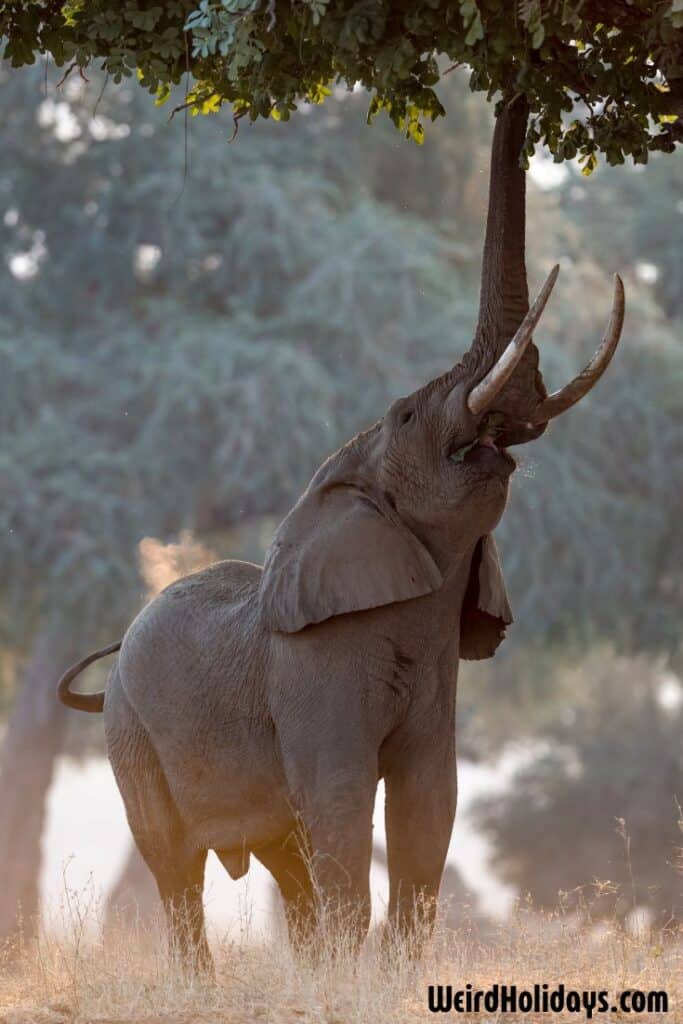
The Intelligence and Social Structures of Elephants
Elephants are not only the largest land animals on Earth but also among the most intelligent. Their cognitive abilities and complex social behaviors are subjects of fascination and study, contributing significantly to our understanding of animal intelligence and emotion.
Cognitive Abilities
Elephants exhibit a range of behaviors that indicate high levels of intelligence and advanced cognitive abilities. They are known for their excellent memory, often remembered as “an elephant never forgets,” which is critical to their survival in the wild. This memory helps them remember the vast expanses of their habitat, including the locations of water sources, which can be crucial during dry seasons.
Elephants are also capable of self-recognition, a trait that is rare in the animal kingdom and indicative of high cognitive function. Studies have shown that elephants can recognize themselves in mirrors, an ability that suggests a level of self-awareness comparable to that of humans, great apes, and dolphins.
Problem-solving is another area where elephants excel. They are known to use tools in various ways, such as modifying branches to use as fly swatters or digging holes to create drinking wells. They also display problem-solving skills in non-natural settings, such as finding ways to break electric fences safely in areas where their habitats are encroached by human settlements.
Social Structures and Behavior
The social life of elephants is incredibly complex and structured, predominantly revolving around family units led by a matriarch. These matriarchal groups usually consist of related females and their young, while adult males tend to live more solitary lives or form loose associations with other males.
Matriarchs are typically the oldest and wisest females in the group, playing a crucial role in leading the family, making decisions about where to forage, and guiding the others to water sources. The survival of the group often depends on the matriarch’s knowledge and experience, which she passes down to the next generations.
Elephant societies are built on cooperation and empathy. They are known for their compassionate treatment of other members of their group, often seen helping injured or ill individuals or cooperating to protect calves from predators. Mourning rituals are another poignant testament to their complex emotional capacities; elephants are often observed grieving their dead, exhibiting behaviors such as touching the bones or carcasses of deceased elephants with apparent sadness and respect.
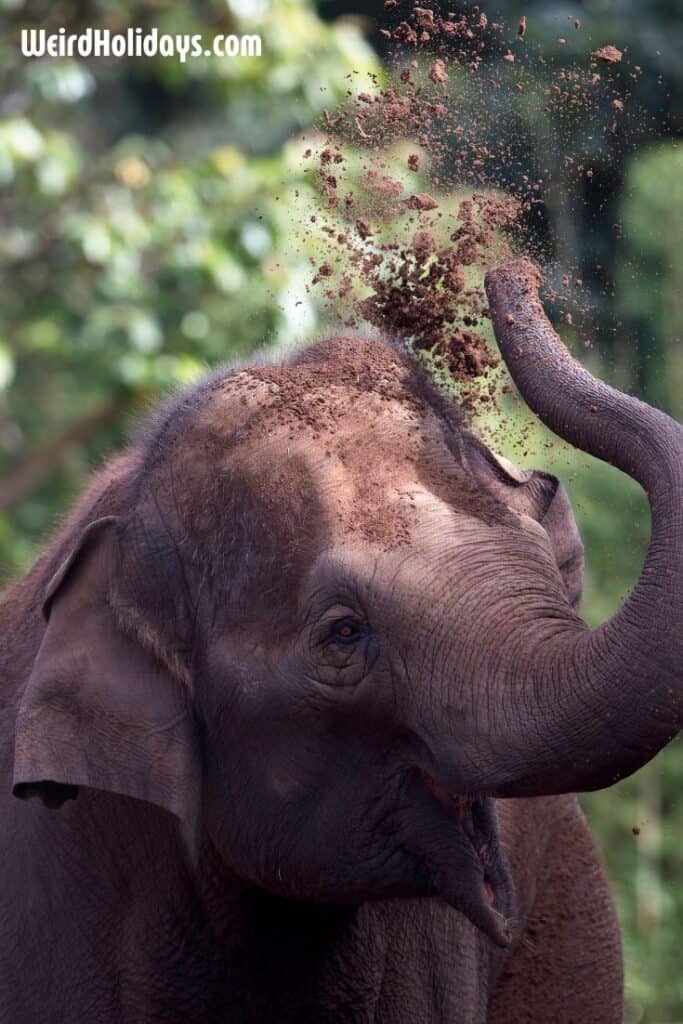
Maternal Instincts and Rearing
Elephant females exhibit profound maternal instincts, and the entire herd plays a role in raising the young. This communal care ensures that all the calves learn essential skills for survival. Young elephants, or calves, are born into a nurturing environment where aunts, sisters, and cousins share in their care and protection.
The gestation period for elephants is the longest of any land animal, at about 22 months, which is a testament to the intricate development of elephant calves. This extended period allows the calves to develop the advanced cognitive abilities they need to interact successfully with their complex social structures.
Understanding the intelligence and social behaviors of elephants enhances our appreciation of these magnificent creatures and highlights the importance of their conservation. Their deep familial bonds, complex emotions, and sophisticated social structures make elephants uniquely fascinating and demonstrate the intrinsic value they add to the natural world and our understanding of animal cognition.
Celebrating World Elephant Day is thus not only about ensuring their survival but also about honoring their profound place within the tapestry of life on Earth.
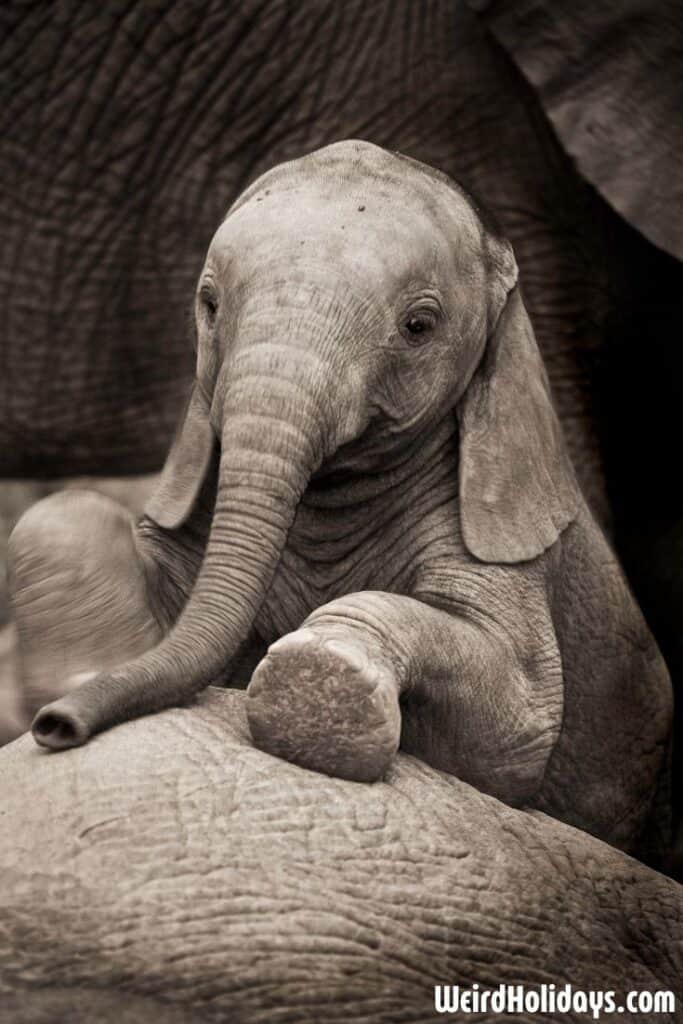
The Plight of Elephants
Despite their revered status, elephants face numerous threats that endanger their populations:
Poaching
The demand for ivory has led to rampant poaching, causing dramatic declines in elephant populations, especially in Africa. Although international trade in ivory was banned in 1989 under the CITES (Convention on International Trade in Endangered Species of Wild Fauna and Flora), illegal poaching and trading continue to pose severe threats.
Habitat Loss
The expansion of human settlements, agriculture, and industrial development has resulted in significant habitat loss and fragmentation for elephants. This not only reduces their living space but also leads to resource shortages, particularly food and water, and increases the likelihood of human-elephant conflicts.
Human-Elephant Conflicts
As human populations expand into elephant habitats, incidents of conflict occur, often resulting in fatalities on both sides. Elephants raid crops and can cause significant economic losses to local communities, which sometimes leads to retaliatory killings.
Climate Change
Climate change exacerbates the challenges faced by elephants, particularly by altering their natural habitats and affecting the availability of critical resources like water.
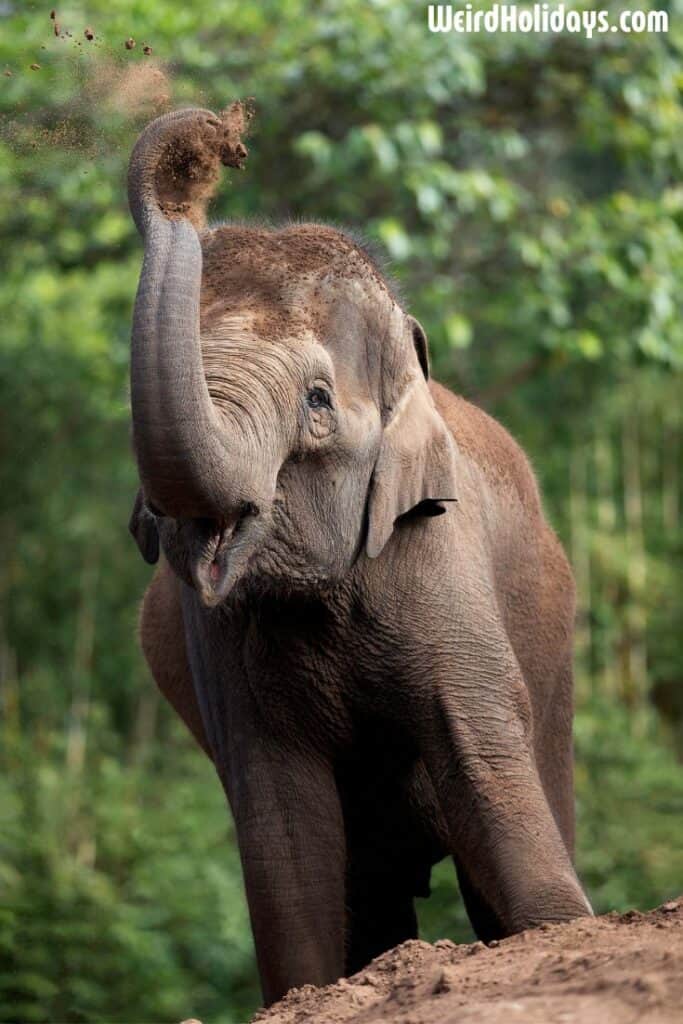
Conservation Efforts
Numerous organizations and governments around the world are engaged in efforts to conserve elephant populations:
Anti-Poaching Measures
Rangers and local communities are increasingly involved in anti-poaching activities. Technologies such as drones, infrared cameras, and automated systems are being deployed to monitor wildlife and detect poachers.
Habitat Conservation
Efforts to protect and restore elephant habitats are crucial for their survival. This includes the creation of wildlife corridors to connect fragmented habitats and allow for safer migration routes.
Community Involvement
Engaging local communities in elephant conservation has proven effective. Educational programs and economic incentives encourage communities to protect wildlife. Projects that include community-based tourism help locals see the value in conservation.
International Cooperation
Global cooperation is critical in tackling issues like illegal wildlife trade. International agreements and conventions play pivotal roles in enforcing laws and regulations that protect elephants.
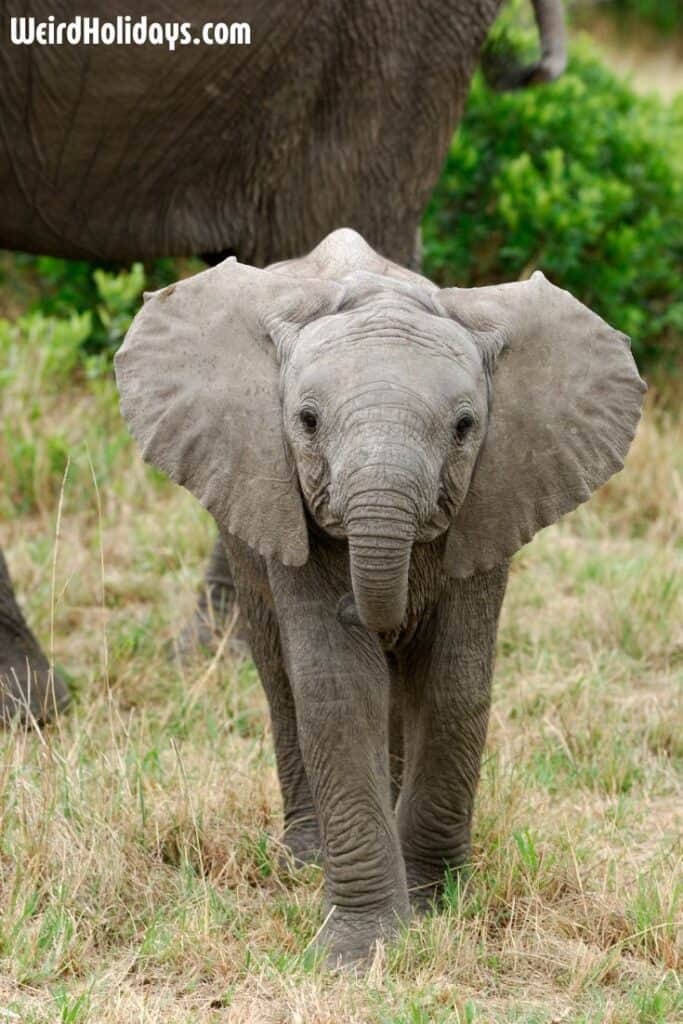
Celebrating World Elephant Day
World Elephant Day is not only a celebration of one of nature’s most majestic creatures but also a call to action to ensure their survival. Here are ten meaningful ways to engage in this important cause and celebrate elephants:
- Visit a Wildlife Sanctuary: Support elephant conservation directly by visiting a wildlife sanctuary or park that prioritizes ethical elephant treatment. These visits can be educational and help fund conservation efforts.
- Host an Awareness Event: Organize an event in your community to educate others about the importance of elephants and the threats they face. Use films, guest speakers, and educational materials to spread the word.
- Participate in a Fundraiser: Many conservation organizations hold fundraisers on World Elephant Day. Participate in or organize a local fundraiser such as a run, bake sale, or charity auction and donate the proceeds to elephant conservation projects.
- Adopt an Elephant: Symbolically adopt an elephant through a wildlife charity. Your support helps fund the care and protection of elephants in the wild or in sanctuaries.
- Social Media Campaign: Utilize your social media platforms to raise awareness by sharing facts about elephants, their plight, and how to help. Use the hashtag #WorldElephantDay to increase the reach of your posts. Follow World Elephant Day on Instagram, Facebook, TikTok, and other social media platforms.
- Support Eco-Friendly Products: Purchase products that are eco-friendly and support sustainable practices that do not encroach on elephant habitats. Look for certifications that indicate a product is sustainably sourced.
- Educational Workshops for Kids: Engage the younger generation by organizing workshops that focus on elephants and their ecosystems. Activities could include arts and crafts (scroll to the bottom of this article to see a list), reading books about elephants, or interactive games that teach children about conservation.
- Write to Policymakers: Advocate for elephants by writing to your local and national policymakers. Encourage them to support wildlife conservation efforts and to enact policies that protect elephants and their habitats.
- Watch and Share Documentaries: Educate yourself and others by watching documentaries about elephants and their conservation. Host a viewing party or share your recommendations online.
- Volunteer: Dedicate your time by volunteering with organizations that work on elephant conservation. Whether it’s helping with local events, assisting with administrative tasks, or traveling abroad to work directly with conservation efforts, your time can make a significant impact.
By participating in these activities, you can help ensure that the awe-inspiring presence of elephants continues to be a part of our world. World Elephant Day is an opportunity to celebrate these incredible animals and to contribute to a future where they thrive in the wild.
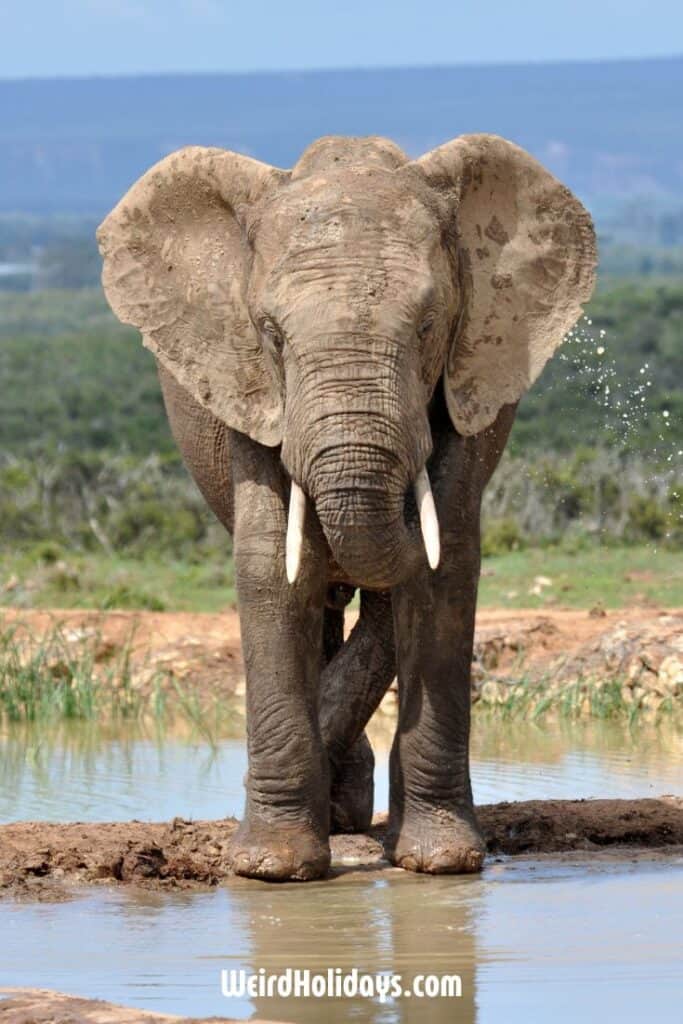
World Elephant Day is not just a day to celebrate these incredible beings but a call to action to ensure their survival. As we face the challenges of conservation, the global community must come together to protect elephants and their habitats. By supporting conservation efforts, educating others about the importance of biodiversity, and advocating for policies that protect wildlife, everyone can contribute to the preservation of elephants and the health of our planet.
Ideas for World Elephant Day
Pin it!
Share this post about World Elephant Day on Pinterest!
